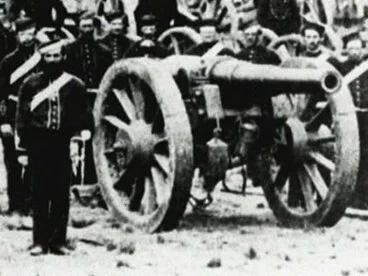What happened during the Invasion of Waikato?
The invasion of Waikato started on the 17th of July 1863 and ended in April 1864. During this invasion, the Kingitanga movement went to war with colonial and British forces because of a breach in the treaty of Waitangi. Governor Grey planned this invasion because he saw the Kingitanga as a threat to British Sovereignty in Aotearoa and deployed 15,000 British soldiers including some Maori people who put their allegiance in the NZ government. Land played a massive role in the reasoning of this war because of the population growth of the British people wanting to buy land. The battle for Waitangi began in November 1863 at Rangiriri, where a Maori defensive line was constructed along a ridge between the river and lake Waikare
How is the Invasion of Waikato is related to different interpretations of the Treaty of Waitangi?
The Kingitanga started because the Maori people decided to have a ruler of their own or a sovereign of their own as a response to the British crown. This was because of land confiscation across Aotearoa which was a breach in the Te Tiriti o Waitangi because of the misinterpretation of both version which was the English Version and Maori Version. In the English version of Article 1, it mentions that the Maori will to give the Queen full Sovereignty over New Zealand and in the Maori translated Version it says that the Maori agree to give the Queen, Kawangtanga which is different from the word Sovereignty. The Maori's understand the word Kawangatanga to have the Queen appoint a Governor who will live in Aotearoa and govern the British, Pakeha only and not Maori. This event is also related to the different interpretations of the Treaty of Waitangi because of Article 2 which is about possession of land.
Origin of Kingitanga:
The Kingitanga movement in 1858 with its first monarch, Patatau Te Wherowhero. The movement includes Maori's from all over Aotearoa forming one Sovereign after the Taranaki war. The Kingitanga movement is considered one of the most enduring Maori constitutions emerging in colonial times. It started to establish a similar role as the British monarchs as a way of halting the alienation of Maori lands. Although, many Maori were scared to join the movement as they knew from personal experiences from the Taranaki war that they would be punished but joined anyways risking their land and Whanau.
Effect: Past and Present
This invasion impacted a lot of Maori people especially the Elderly, Women and Child who were slaughtered at the hands of the Colonial British soldier as they were trying to escape for safety. This invasion caused a lot of Maori to lose land as Britain eventually defeated them in the end. However, The Kingitanga still remains to this day after being defeated by Britain during the invasion and war of Waikato but is said to still be weak and has existed for 150 years. The effect of the Waikato invasion has today is the loss of land and knowledge and history of iwi. As of today, we see more and more children lacking the understanding and knowledge of their iwi and land since it is no longer in their ownership. This invasion has, did and will continue to effect people in Aotearoa many years from now.
Invasion of the Waikato
Wikipedia
Invasion of Waikato
Manatū Taonga, the Ministry for Culture and Heritage
Resources above
